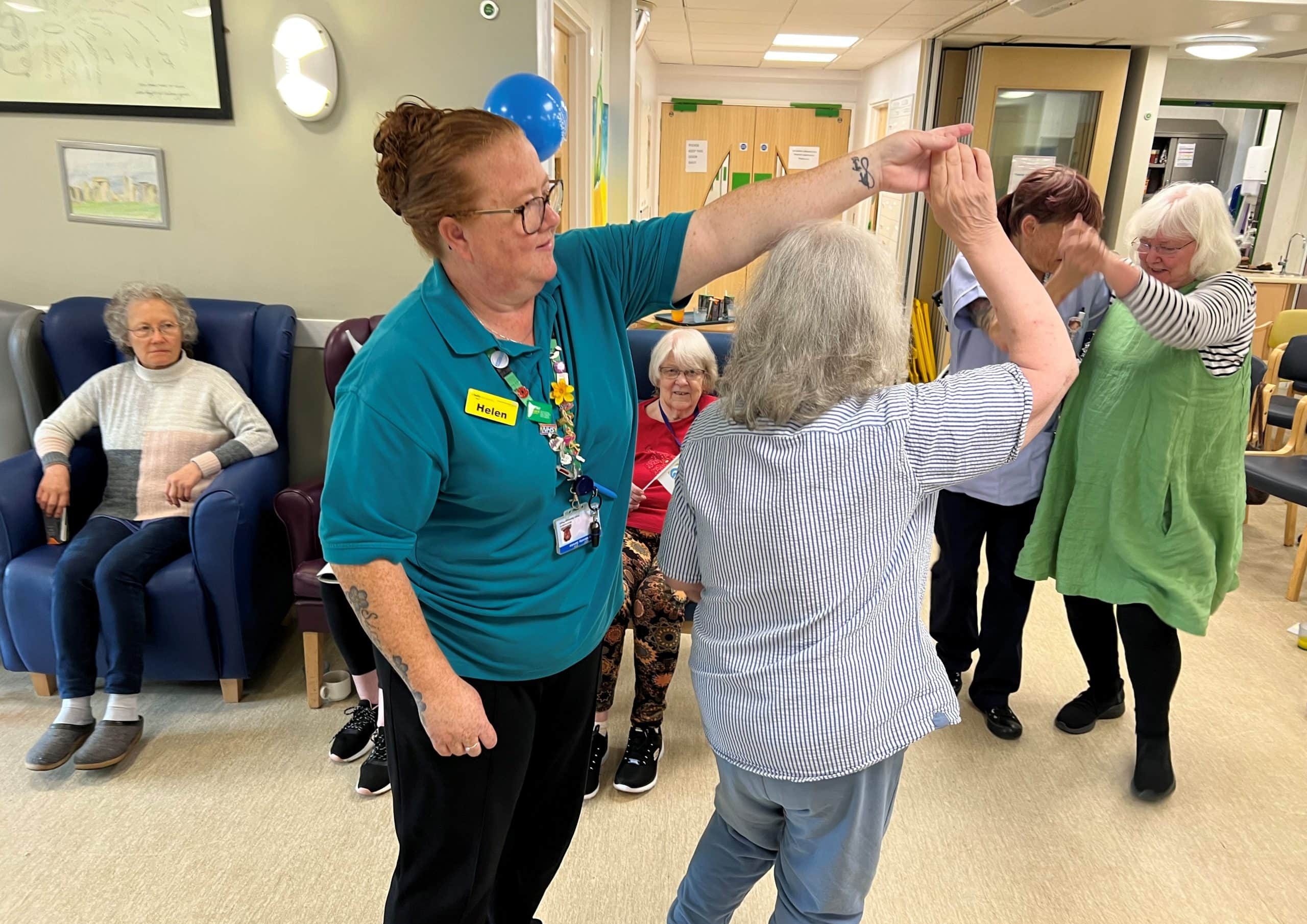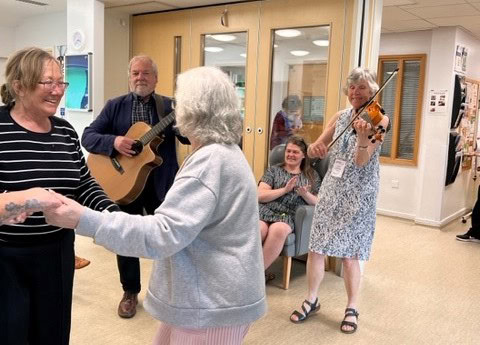World Mental Health Day: Supporting patients at Charlton Lane Hospital


Music helps people feel less alone and more in control of their emotions. Research shows that live music can reduce symptoms of depression and anxiety, while also helping people feel more connected and less distressed. This World Mental Health Day, we’re celebrating the healing power of live music at Charlton Lane Hospital’s Mulberry Ward in Cheltenham, which provides specialist care for older people with acute mental health conditions.
One of our regular musicians at Charlton Lane Hospital, fiddle player Moira Gutteridge, visits the ward alongside her husband Peter as a musical duo. Moira recalls the powerful impact of a recent live music experience: “Some of the staff handed out percussion instruments to the patients, and danced enthusiastically as we played, encouraging everyone to tap or clap along.
“One gentleman got up and moved to the music from the very first note, and did a mixture of dancing and singing throughout, managing to match the notes of my singing in a falsetto voice. Clearly the music meant a lot to him. Other people, although sitting quietly were tapping their feet.”
It’s these shared moments, whether clapping, singing, or simply listening, that create a ‘feel-good hour’ for patients. Many request upbeat songs from the 60s, 70s and 80s, music that brings back happy memories and offers comfort.
Moira added: “At the end, another lady came up and spoke to me about how she had played the violin as a child and young woman, but that her fingers were too stiff now.”
For patients who might be feeling anxious or alone, our live music offers a way to create new memories and share experiences with others, helping relieve frustration, stress and isolation. Last year, we brought live music to 88 mental health settings, delivering 397 hours of live music in mental health wards, 56 hours in the community, and two hours in care homes.
One in four people experience a mental health problem each year. In 2023/24, 6.6% of people in England were in contact with mental health, learning disability, and autism services, up from 6.3% the year before and 5.8% the year before that.
There has never been a more important time to shine a light on the role of live music in patient recovery and mental health care. Live music can transform relationships between patients, families, healthcare professionals, residents and carers. When people enjoy music together, they feel more connected to each other, which leads to more personalised care.
Make a donation
Please give today to help improve the health and wellbeing of children and adults through the healing power of live music.
